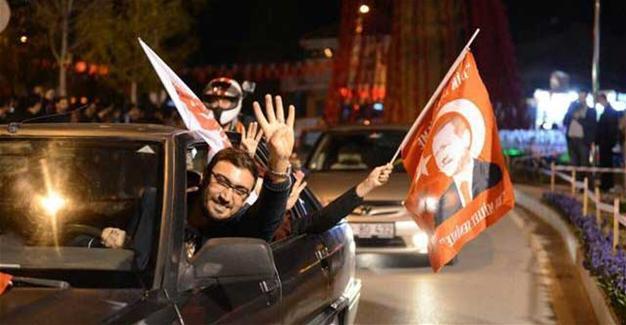US, EU to wait for OSCE report on referendum before evaluating results
BRUSSELS

Western leaders have reacted cautiously after the “Yes” campaign emerged as the winner of Turkey’s April 16 referendum on shifting to an executive presidential system.
Some 51.3 percent of the more than 58 million Turkish voters said “Yes” to the ruling Justice and Development Party’s (AKP) constitutional amendment package.
However, a number of capitals chose to hold fire until hearing the opinion of the Organization for Security and Cooperation in Europe (OSCE) which had an observer mission in Turkey.
Others offered initial cautious, reactions.
The EU urged the Turkish government to seek the broadest possible agreement after President Recep Tayyip Erdoğan’s narrow victory on sweeping constitutional changes.
“In view of the close referendum result and the far-reaching implications of the constitutional amendments, we call on the Turkish authorities to seek the broadest possible national consensus in their implementation,” said a statement issued by European Commission head Jean-Claude Juncker, EU foreign affairs chief Federica Mogherini and EU Enlargement Commissioner Johannes Hahn.
The European Commission, the executive body of the EU, said the close result meant that Ankara should seek “the broadest national consensus” in implementing the vote.
Relations hit a low during the referendum campaign when EU countries, including Germany and the Netherlands, barred Turkish ministers from holding rallies in support of the changes.
President Erdoğan called the moves “Nazi acts” and said Turkey could reconsider ties with the EU after many years of seeking membership to the bloc.
Former Belgian Prime Minister Guy Verhofstadt, who heads the liberal group of MEPs in the European Parliament, said Erdoğan needed to change course, noting the result was very tight.
“If Erdoğan persists, the EU should stop accession talks,” Verhofstadt said.
Austrian Foreign Minister Sebastian Kurz said on Twitter that “it shows how divided the country is. Collaboration with the EU will be even more complex.”
“Strange to see democracy restrict democracy. The majority has the right to decide, but I’m quite concerned about new Turkish constitution,” Danish Prime Minister Lars Lokke Rasmussen said Twitter.
A NATO official said the constitutional referendum in alliance member Turkey “is a matter for the Turkish people.”
One of the harshest statements was made by the EU’s rapporteur on Turkey, Kati Piri, who said accession talks would be suspended if the referendum package is implemented in its current form.
“This is a sad day for all democrats in Turkey. It is clear that the country cannot join the EU with a constitution that doesn’t respect the separation of powers and has no checks and balances. If the package is implemented unchanged, this will have to lead to the formal suspension of the EU accession talks. Continuing to talk about Turkey’s integration into Europe under the current circumstances has become a farce,” Piri said.
The U.S., meanwhile, said it is following the results and but won’t comment on them until the OSCE releases its report.
 Western leaders have reacted cautiously after the “Yes” campaign emerged as the winner of Turkey’s April 16 referendum on shifting to an executive presidential system.
Western leaders have reacted cautiously after the “Yes” campaign emerged as the winner of Turkey’s April 16 referendum on shifting to an executive presidential system.